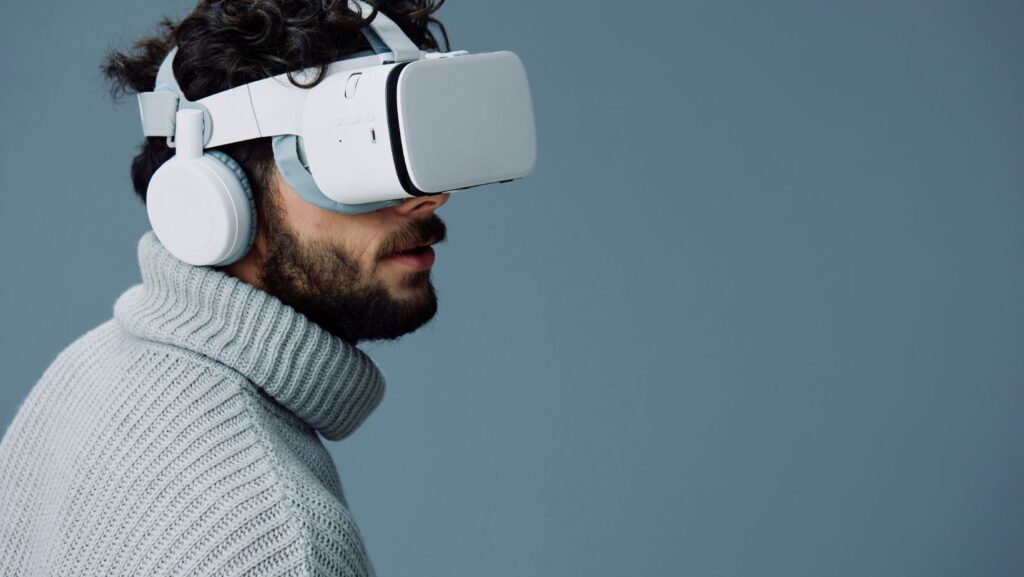
In today’s fast-paced world, wearable technology is revolutionizing how people interact with their devices and monitor their health. From fitness trackers to smartwatches, these innovative gadgets have become an integral part of daily life, offering convenience and connectivity right at users’ fingertips. As demand for wearable tech grows, companies in this sector are pushing boundaries to deliver cutting-edge solutions that cater to diverse needs.
 Wearable tech companies are at the forefront of this digital transformation, constantly innovating to enhance user experience and functionality. They blend style with technology, ensuring these devices are not only practical but also fashionable. With advancements in sensors, battery life, and design, these companies are setting new standards in personal technology.
Wearable tech companies are at the forefront of this digital transformation, constantly innovating to enhance user experience and functionality. They blend style with technology, ensuring these devices are not only practical but also fashionable. With advancements in sensors, battery life, and design, these companies are setting new standards in personal technology.
As the market expands, competition among wearable tech firms intensifies, driving them to explore new possibilities and applications. This dynamic landscape promises exciting developments, making it an essential area to watch for tech enthusiasts and consumers alike.
Wearable Tech Companies
Wearable tech companies drive innovation by merging advanced technology with everyday use. They focus on creating practical devices like smartwatches, fitness trackers, and augmented reality glasses. Apple, a leader in smartwatches, blends cutting-edge features with stylish designs. Fitbit, known for fitness trackers, emphasizes health data accuracy and user-friendly interfaces. Google ventures into smart eyewear with Google Glass, aiming to redefine consumer interaction with technology.
Established brands like Samsung expand into wearables, pushing product diversity. Smaller startups bring fresh perspectives with niche innovations, accelerating industry growth. Garmin leads in GPS-enabled devices, offering specialized functionality for outdoor enthusiasts.
These companies prioritize integration by developing seamless connections with smartphones and other tech ecosystems. The emphasis on connectivity enhances user experience and keeps users engaged. Customization and personalization appeal to diverse consumer preferences, adding value to basic functionalities.
Major Players In The Market
Apple dominates the market with its Apple Watch, offering a blend of design, health features, and connectivity. Fitbit, acquired by Google, specializes in fitness tracking, providing users with health insights. Samsung merges technology and style with its Galaxy wearables, focusing on smart integration. Garmin targets outdoor enthusiasts with GPS-enabled devices, known for accuracy and durability. Xiaomi appeals to a budget-conscious audience, delivering affordable yet functional wearables.

Huawei enhances user experience through its smartwatches, incorporating advanced sensors and long battery life. Sony leverages its expertise in innovation, introducing devices that emphasize music and fitness. Fossil partners with tech companies to deliver fashionable smartwatches, attracting style-focused consumers.
The market landscape is shaped by these players who constantly push the boundaries of wearable tech. They focus on integrating new technologies, meeting consumer demands, and expanding product functionalities. Collaborations with other industries, such as fashion and healthcare, facilitate the development of aesthetically pleasing and multifunctional devices. These efforts contribute to the overall growth and sustainability of the wearable tech industry.
Key Trends In Wearable Technology
Wearable technology is evolving with a focus on health monitoring advancements. Devices now incorporate sensors to track vital signs, providing comprehensive health insights. Fitness enthusiasts benefit from wearable ECGs and blood oxygen monitoring, promoting proactive health management.
Fashion integration in wearable tech is expanding market appeal. Companies collaborate with designers to create aesthetically pleasing devices. Smartwatches merge style and functionality, attracting diverse consumer segments.

AI and machine learning enhance wearable capabilities. Devices analyze user data to offer personalized feedback and recommendations. This trend improves user experience, fostering engagement.
Augmented reality (AR) is gaining traction in the wearable sector. Companies explore AR glasses for interactive experiences. These wearables offer immersive environments for gaming and workplace applications.
Sustainable materials in wearables address environmental impacts. Brands adopt eco-friendly practices, appealing to environmentally conscious consumers. Biodegradable and recycled materials feature prominently in new products.
Challenges Facing Wearable Tech Companies
Wearable tech companies face several challenges as they navigate this rapidly evolving industry. They must continuously innovate to stay ahead in a competitive market while balancing design aesthetics and functionality. Ensuring data privacy and security is paramount as devices collect sensitive personal information.
Companies are also tasked with improving battery life and energy efficiency to enhance user convenience. Additionally, integrating sustainable practices is becoming increasingly important to meet consumer expectations for environmentally friendly products. By addressing these challenges, wearable tech companies can continue to drive growth and maintain their relevance in the tech landscape.


